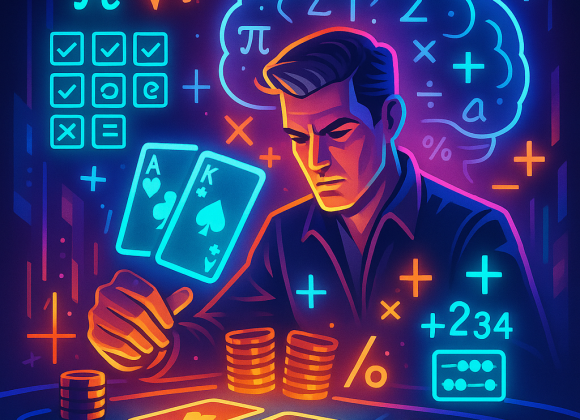Understanding the Psychological Impact of Gambling Addiction
Gambling addiction is a complex behavioral disorder that affects millions of individuals worldwide. It is often characterized by an uncontrollable urge to gamble, despite the detrimental consequences that may arise. The psychological impact of gambling addiction is profound and multifaceted, as it typically entails a combination of emotional turmoil, cognitive disarray, and social isolation. For many, gambling becomes a primary coping mechanism, allowing them to escape reality while simultaneously exacerbating underlying mental health issues, including depression.
Individuals who struggle with gambling addiction frequently experience feelings of shame, guilt, and hopelessness. These emotions can lead to a vicious cycle where the individual gambles to cope with these negative feelings, only to find themselves deeper in debt and further entrenched in despair. The correlation between gambling addiction and depression is particularly concerning, as the two often feed into one another, creating an almost inescapable loop of dysfunction. Understanding this psychological impact is crucial for both treatment professionals and those affected, as it lays the groundwork for more effective interventions.
Moreover, gambling addiction can disrupt various facets of life, including personal relationships, employment, and financial stability, further intensifying feelings of depression. The stigma associated with addiction also plays a significant role in exacerbating these emotional struggles; many individuals feel they cannot seek help due to fear of judgment. Hence, it is vital to create a supportive environment in which individuals feel safe discussing their gambling habits and associated mental health issues.
Interestingly, research illustrates that individuals with pre-existing mental health conditions, including anxiety and depression, are more susceptible to developing gambling problems. This suggests that gambling may serve as a maladaptive coping strategy for those already grappling with mental health challenges. Therefore, recognizing gambling addiction as a serious psychological issue that often coexists with depression is essential for effective treatment and intervention strategies.
The psychological ramifications of gambling addiction extend beyond the individual, affecting families and communities. The impact of one person’s addiction can ripple outward, leading to strained relationships and financial instability for loved ones. Furthermore, the normalization of gambling in society can contribute to a lack of awareness regarding its potential harms, making it all the more crucial to address the psychological impact of gambling addiction as a collective issue.
In summary, the psychological impact of gambling addiction is significant, influencing not only the individual but also their immediate social circle. Acknowledging the interplay between gambling and mental health can pave the way for more comprehensive treatment approaches, allowing individuals to reclaim their lives from the clutches of addiction and depression.
The Cycle of Gambling: Escapism and Emotional Despair
Gambling often serves as an escape for individuals facing emotional distress, creating a cycle that can lead to ever-deepening despair. Initially, the excitement and thrill of gambling can provide a temporary relief from life’s pressures, allowing individuals to momentarily forget their worries. However, this escape is fleeting, and once the reality of their situation returns, individuals often find themselves compelled to gamble again in search of that elusive high.
As the cycle continues, the emotional toll of gambling becomes more pronounced. Individuals may experience increased anxiety about their financial situations, leading to a decline in their overall mental health. This downward spiral can result in feelings of inadequacy and worthlessness, particularly when gambling leads to significant losses. The initial escapism morphs into a source of emotional despair, reinforcing the very issues the individual sought to escape from in the first place.
This cycle is further complicated by cognitive distortions that may affect an individual’s viewpoint on gambling. Many gamblers hold onto erroneous beliefs, such as the illusion of control or the gambler’s fallacy, which perpetuates their gambling behavior. These distortions not only drive continued gambling but also contribute to feelings of depression when individuals inevitably face losses that contradict their misguided beliefs.
The emotional despair associated with this cycle can lead to a range of psychological issues, including clinical depression, anxiety disorders, and even suicidal ideation. It is not uncommon for individuals entrenched in this cycle to feel trapped, believing there is no way out. This sense of hopelessness can further deepen their depression, making it difficult to envision a life free from gambling.
Breaking this cycle demands a comprehensive understanding of the intertwined nature of gambling and emotional health. Effective interventions must address not only the addictive behavior itself but also the underlying emotional issues that drive individuals to seek out gambling as a form of escape. By tackling these root causes, individuals can begin to dismantle the cycle of gambling and emotional despair.
In conclusion, the relationship between gambling and emotional despair is cyclical and self-reinforcing. Recognizing this cycle is crucial for developing effective treatment options that can help individuals reclaim their lives from the grips of both gambling addiction and depression.
Statistical Correlations: Gambling Rates and Depression Levels
Understanding the statistical correlations between gambling rates and levels of depression can provide invaluable insight into the severity of this issue. Numerous studies have shown a significant overlap between problem gambling and mental health disorders, particularly depression. For instance, research indicates that approximately 20% of individuals with gambling problems also suffer from major depressive disorder, compared to just 5% in the general population.
| Statistic | General Population | Problem Gamblers |
|---|---|---|
| Prevalence of Depression | 5% | 20% |
| Co-occurring Anxiety Disorders | 25% | 50% |
| Substance Abuse Disorders | 10% | 30% |
| Suicidal Ideation | 3% | 15% |
| Divorce Rates | 10% | 60% |
The table above illustrates the stark contrast between the general population and those struggling with gambling addiction concerning various mental health issues. The elevated rates of co-occurring disorders among problem gamblers highlight the urgent need for integrated treatment approaches that address both gambling behaviors and mental health.
Furthermore, longitudinal studies have shown that as gambling rates rise in a given population, so too do incidences of depression and anxiety. Countries with legalized gambling often report higher rates of gambling addiction and related mental health issues. This correlation suggests that accessibility to gambling can exacerbate existing mental health problems, further complicating the landscape for treatment and intervention.
In light of these statistics, it becomes increasingly evident that gambling addiction is not just a behavioral issue but a significant public health concern. The link between gambling and depression calls for increased awareness and education, as well as policy changes that may help mitigate the risks associated with gambling.
The implications of these findings are profound, particularly for healthcare providers and policymakers. By acknowledging the substantial correlation between gambling and mental health issues, more targeted prevention and treatment strategies can be developed. This is essential for not only reducing gambling addiction rates but also improving overall mental health outcomes in affected populations.
In summary, the statistical evidence strongly supports a link between gambling rates and depression levels. Addressing this relationship is critical for creating effective treatment strategies and policies that can better support individuals struggling with both gambling addiction and mental health issues.
The Role of Cognitive Distortions in Gambling Behavior
Cognitive distortions play a pivotal role in reinforcing gambling behavior, often contributing to the cycle of addiction and depression. These distortions are erroneous thought patterns that can skew an individual’s perception of reality, leading them to make irrational decisions regarding gambling. Common distortions include the illusion of control, where gamblers believe they can influence the outcome of random events, and the gambler’s fallacy, which is the belief that past events can predict future outcomes.
These cognitive distortions can lead individuals to engage in increasingly risky gambling behaviors, as they may underestimate the likelihood of losses. The thrill associated with gambling can reinforce these beliefs, creating a feedback loop where the gambler feels justified in their actions despite mounting evidence to the contrary. This can lead to a sense of denial, where individuals refuse to acknowledge the negative impact gambling is having on their lives.
Moreover, cognitive distortions can exacerbate feelings of depression when individuals are confronted with the reality of their losses. The emotional pain associated with these losses can lead to further distortions, such as catastrophizing or blaming external factors for their problems. These negative thought patterns can trap individuals in a state of despair, making it difficult to seek help or envision a way out of their predicament.
Understanding the role of cognitive distortions in gambling behavior is essential for developing effective treatment strategies. Cognitive-behavioral therapy (CBT) is one approach that has shown promise in addressing these distortions. By helping individuals recognize and challenge their erroneous beliefs, therapists can empower them to make more rational decisions regarding gambling and improve their overall mental health.
Furthermore, addressing cognitive distortions can also facilitate better emotional regulation. As individuals learn to identify and correct their distorted thinking, they may find it easier to cope with the underlying emotional issues that contribute to their gambling behavior. This dual approach can lead to more sustainable recovery outcomes.
In conclusion, cognitive distortions are a critical factor in the relationship between gambling and depression. Recognizing and addressing these distortions through targeted interventions can pave the way for effective treatment and recovery, helping individuals break free from the cycle of addiction and despair.
Treatment Approaches: Addressing Dual Diagnosis Effectively
The co-occurrence of gambling addiction and depression necessitates a dual diagnosis approach to treatment. This means that both the addictive behavior and the underlying mental health issues must be addressed simultaneously for effective recovery. Integrated treatment plans that consider the unique needs of individuals struggling with both gambling and depression have shown promising results.
One effective treatment modality is Cognitive-Behavioral Therapy (CBT), which helps individuals identify and challenge the cognitive distortions that contribute to both their gambling behavior and depressive symptoms. Through structured sessions, individuals can learn coping strategies to manage both their cravings to gamble and their emotional distress, thereby reducing the likelihood of relapse.
In addition to CBT, support groups such as Gamblers Anonymous (GA) can provide a network of support and understanding among peers who are facing similar challenges. These groups allow individuals to share their experiences, fostering a sense of community that can be invaluable in the recovery process. The support offered by fellow members often helps mitigate feelings of isolation and shame that can accompany both gambling addiction and depression.
Medication may also play a role in the treatment of co-occurring disorders. Antidepressants and anti-anxiety medications can help alleviate symptoms of depression, making it easier for individuals to engage in therapeutic interventions. However, medication should be considered as part of a comprehensive treatment plan that includes behavioral therapies and support systems.
Moreover, family involvement in treatment can enhance recovery outcomes, as loved ones can provide additional support and understanding. Family therapy can help address relational dynamics that may contribute to an individual’s gambling behavior, promoting healthier communication and coping strategies within the family unit.
In summary, addressing dual diagnosis effectively requires a holistic and integrated approach that considers both gambling addiction and depression. Utilizing a combination of therapies, support systems, and possibly medication can provide individuals with the tools they need to embark on a path toward recovery.
Breaking the Stigma: Seeking Help for Gamblers and Depression
Breaking the stigma surrounding gambling addiction and depression is essential for encouraging individuals to seek help. Both issues are often shrouded in shame and misunderstanding, which can prevent those affected from accessing the support and treatment they need. Societal perceptions often view gambling addiction as a moral failing rather than a legitimate mental health disorder, perpetuating harmful stereotypes that can hinder recovery.
To combat this stigma, education and awareness campaigns are crucial. Increasing public knowledge about the psychological nature of gambling addiction and its links to depression can foster empathy and understanding. These campaigns can help dispel myths and encourage individuals to view gambling addiction as a health issue that requires compassion and intervention, rather than judgment.
Moreover, creating safe and accessible avenues for seeking help is vital. Community resources, such as counseling services and support groups, should be widely publicized and easily accessible to those in need. Ensuring that individuals feel safe when discussing their struggles is essential for promoting recovery and long-term well-being.
Additionally, engaging public figures and organizations in advocating for mental health awareness can contribute to a cultural shift that normalizes seeking help for gambling addiction and depression. When influential individuals share their experiences, it can inspire others to do the same, fostering a sense of solidarity among those facing similar challenges.
In conclusion, breaking the stigma surrounding gambling addiction and depression is crucial for encouraging individuals to seek help. By fostering a culture of understanding and compassion, we can create an environment where those affected feel empowered to address their struggles and embark on a path toward recovery.
Q&A Section
Q: What is the relationship between gambling addiction and depression?
A: Gambling addiction and depression often coexist, with each condition exacerbating the other. Individuals may gamble to escape feelings of depression, while the financial and emotional consequences of gambling can lead to increased depressive symptoms.
Q: How can cognitive distortions affect gambling behavior?
A: Cognitive distortions can lead individuals to make irrational decisions regarding gambling, such as believing they have control over random outcomes. These erroneous beliefs can perpetuate gambling behavior and associated feelings of depression.
Q: What are effective treatment options for dual diagnosis?
A: Effective treatment for individuals struggling with both gambling addiction and depression often includes Cognitive-Behavioral Therapy (CBT), support groups, medication, and family involvement to address both the addictive behavior and underlying mental health issues.
Q: How can stigma affect individuals seeking help for gambling addiction?
A: Stigma can create feelings of shame and isolation, preventing individuals from seeking help for gambling addiction and related mental health issues. Increasing awareness and understanding can encourage individuals to access the support they need.
Q: What role do support groups play in recovery?
A: Support groups provide a community of understanding and shared experiences, helping individuals feel less isolated in their struggles. These groups offer emotional support and accountability, which can be critical in the recovery process.
Q: Why is it important to address both gambling and depression simultaneously?
A: Addressing both conditions simultaneously is crucial because they are often interconnected. Treating only one condition may not lead to long-term recovery if the other remains unaddressed, thus necessitating a holistic approach to treatment.




